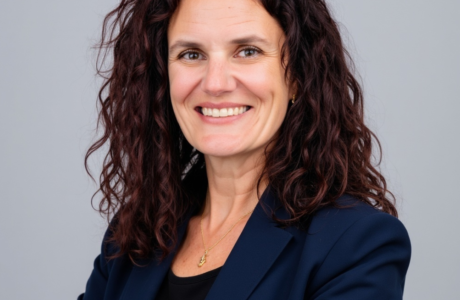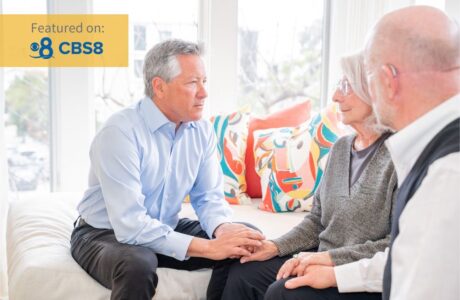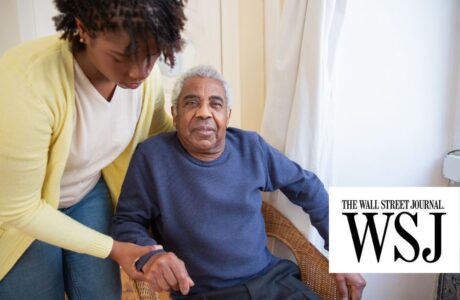
Evidence-Based Ways Palliative Models Reduce Caregiver Stress and Burnout Pillar: Family Support
A Mental Health Day Reminder
Behind every patient is a caregiver—often a spouse, child, or close friend—carrying invisible weight. The exhaustion, sleepless nights, and relentless decision-making take a toll on both body and mind.
The good news? Caregiver burnout is manageable—and one of the most effective solutions is early access to palliative care.
This World Mental Health Day, we’re diving into what burnout really is for caregivers and ways to recover.
What Caregiver Burnout Looks Like
The signs aren’t always obvious at first. But they build over time, sometimes breaking a caregiver’s health before they notice.
Common caregiver burnout signs include:
- Constant fatigue, even after rest
- Irritability or withdrawal from friends and family
- Feeling helpless or trapped
- Trouble sleeping or concentrating
- Neglecting your own medical needs
- Heightened anxiety or depression
If any of these sound familiar, you’re not alone. Studies show that more than 40% of caregivers of seriously ill adults report high emotional distress.
Why Caregivers Need Mental Health Support Too
Families often believe palliative care is only about the patient. In reality, it was designed for patients and families. It doesn’t just treat symptoms—it treats the whole system of care.
Evidence-based palliative models improve caregiver outcomes by:
- Providing structured respite so families get breaks
- Offering 24/7 clinical support, reducing midnight ER runs
- Giving caregivers emotional and grief counseling
- Teaching practical tools for medication management and symptom tracking
- Supporting shared decision-making so no one feels alone in critical choices
Caregivers with palliative support report lower depression, reduced anxiety, and better long-term health outcomes than those without it.

The Science of Caregiver Stress
When caregiving becomes overwhelming, the impact isn’t just emotional—it’s physical. Stress hormones like cortisol spike with chronic strain, weakening the immune system, raising blood pressure, and even increasing risk of heart disease.
Research shows caregivers have higher rates of hypertension, diabetes, and depression compared to non-caregivers. Some studies even suggest prolonged caregiver stress can shorten life expectancy.
That’s why mental health support for caregivers isn’t optional—it’s essential. Treating burnout early protects not only the caregiver but also the quality of care their loved one receives.
Respite Care: More Than a Break
One of the strongest predictors of burnout is lack of rest. Respite care—temporary relief for caregivers—goes beyond a simple break. With in-home palliative models, it can look like:
- A nurse visiting so a spouse can attend their own doctor’s appointment
- A counselor supporting family meetings to reduce conflict
- Overnight coverage so loved ones can finally sleep through the night
There are also different types of respite care families can explore:
- In-home respite: medical or non-medical providers come to the house.
- Adult day services: structured daytime programs with supervision.
- Short-term inpatient respite: temporary stays in hospice or specialized facilities.
These small but vital supports are not luxuries—they’re lifelines.
Mental Health Benefits of In-Home Palliative Care
When care shifts home, mental health outcomes improve for both patients and caregivers. Families gain:
- Fewer hospitalizations: reducing stress and disruption
- Continuity of care: one team overseeing physical, emotional, and spiritual needs
- Space to be family again: caregivers get to step out of the “nurse” role and back into their original relationship
This isn’t just anecdotal—it’s backed by research. Caregivers in home-based palliative programs consistently report higher satisfaction, less strain, and a greater sense of peace.
Comparing Palliative vs. Traditional Care Models
To understand the difference, here’s a quick comparison:
Traditional Healthcare | Palliative Model of Care |
|---|---|
Care is fragmented, with multiple specialists who rarely communicate. | Care is coordinated by a single team that collaborates across needs. |
Emergency rooms often become the default for crises. | 24/7 physician-led support reduces avoidable ER visits. |
| Emotional needs of caregivers are overlooked. | Counseling and support are built into the care plan. |
Families often make major decisions under pressure, alone. | Shared decision-making with experts reduces fear and guilt. |
Signs It’s Time to Ask for Help
Many families wait too long to seek support because they’re unsure if their situation “qualifies.” If any of these resonate, it may be time:
- You’re Googling medical questions at 2 a.m.
- You’ve skipped your own doctor’s appointments to keep caregiving commitments.
- Your loved one’s needs feel bigger than you can manage alone.
- You feel constant guilt or worry about “getting it wrong.”
- You can’t remember the last time you had a full night’s sleep.
If you see yourself in even one of these, palliative support can lighten the load.

Practical Tools for Caregivers
Try these steps today to protect your own mental health:
Caregiver Burnout Checklist
- I’m getting at least 6–7 hours of sleep most nights
- I’ve had a personal health appointment in the last 6 months
- I’ve asked someone else for help in the last 2 weeks
- I’ve had a break of 24 hours or more in the last month
- I’ve spoken to a counselor, friend, or support group about how I’m coping
If you checked “no” to more than two of these, you may be experiencing caregiver burnout.
Conversation Script for Your Doctor
“I’m overwhelmed by my caregiving role. What palliative services or respite options are available so I can maintain my own health while supporting my loved one?”
Caregiver Voices: What Families Say
Families who choose palliative support often describe immediate relief:
- “Bob and Elizabeth gave us the tranquility we needed. It made a total difference in the way my Dad passed away. It allowed me to be the daughter, not a nurse.” — Eva G.
- “There was no pressure, only support. It felt like someone putting their arms around us in the hardest moment.” — Bill P.
These are not just testimonials—they are reflections of how whole-person care protects caregivers as much as patients.
How Empowered Endings Supports Caregivers
At Empowered Endings, we see caregiver well-being as essential, not optional. Our concierge palliative and end-of-life care model is designed to ease both patient and caregiver suffering.
What we offer families:
- 24/7 physician-led guidance so you’re never alone in a crisis
- In-home clinical visits that prevent unnecessary hospitalizations and reduce stress
- Emotional and grief counseling tailored to caregivers as well as patients
- Legal and planning support to reduce the burden of decision-making
Our mission is to restore dignity, agency, and peace to patients and families by filling the gaps left by traditional healthcare.
EDTRA: Why Families Trust Empowered Endings
The difference is in the details. Because we’re not bound by insurance limitations, we provide services others can’t—from IV fluids and labs at home to guidance on complex end-of-life options like MAiD and VSED. Families describe feeling relief the moment they know someone is walking beside them, not just treating symptoms.
With decades of expertise and countless 5-star family testimonials, Empowered Endings is more than a care provider—it’s a partner in making sure caregivers don’t have to break down while holding everyone else up.
The Future of Caregiver Support
Caregiving in the U.S. is evolving. Policy advocates are pushing for caregiver stipends, workplace protections, and expanded insurance coverage for respite care. Digital tools—like symptom trackers and caregiver apps—are also emerging to ease coordination.
But technology and policy alone can’t replace human connection. The future lies in integrated care models like Empowered Endings, where mental health, physical health, and family well-being are addressed together protecting the care partners and patients.
Conclusion: A Call to Care for Yourself Too
On World Mental Health Day, we’re reminded that caregivers deserve care too. Burnout is not a sign of weakness—it’s a sign of carrying more than one person should. The good news: with palliative support, relief is possible.
You don’t have to wait until you’re overwhelmed to ask for help. The right support can transform the journey for both you and your loved one.
One Next Step (CTA)
👉 Families: Book a complimentary Connection & Clarity Call—a gentle, no-pressure 30–45 minute conversation with a trained expert. We’ll help you map options, address your biggest concerns, and find a path forward that supports both your loved one and your own mental health.





